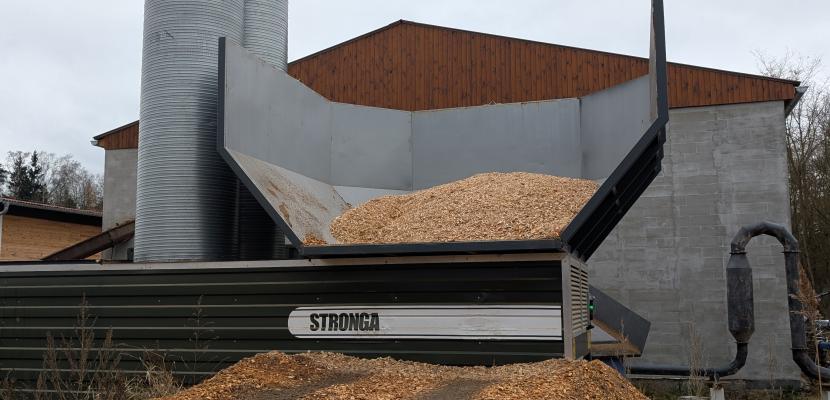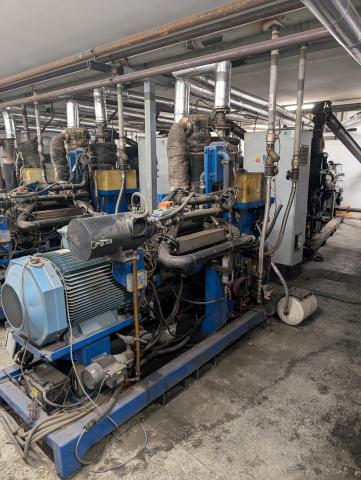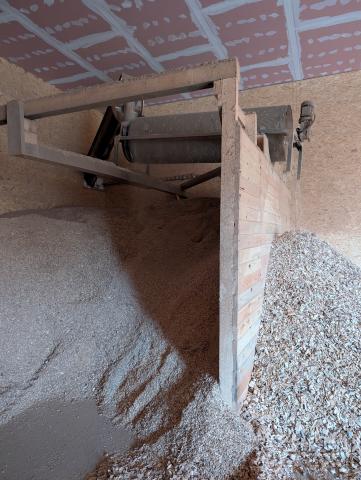
Energy self-sufficiency through pyrolysis and CHP at a Czech sawmill Equidomus

About this good practice
Equidomus, a small Czech sawmill and manufacturer of wooden horse shelters based in Soběslav (South Bohemia region), faced a challenge common in the timber industry - managing large volumes of woodchip waste generated during processing. Previously, this waste was sold to a local district heating plant at little to no profit. Simultaneously, the company required substantial heat for drying timber before milling—resulting in energy dependency and inefficient resource use.
To address these issues, Equidomus invested in an innovative energy system based on biomass pyrolysis and internal combustion engine combined heat and power (CHP) units. The installation includes six pyrolysis reactors that convert woodchips into woodgas, which then fuels six CHP units (each 50 kWel / 80 kWth). The process not only generates heat and electricity for the company operation, but also produces biochar—a valuable, carbon-negative byproduct used as fertilizer and sold on a secondary carbon offset market.
This integrated system enables the company to become energy self-sufficient on a balance-sheet level, reducing waste and lowering emissions. Key stakeholders include Equidomus as the operator and investor, technology providers (Spanner Holzkraft), and potential agricultural users of biochar. The main beneficiaries are the company, its customers, and the environment.
Resources needed
Total investment ~1.35 mil. EUR. Partially funded by public sources: Equidomus received support for the feasibility study (OP PIC, 2019, MIT CZ) and CZ National Development Bank (2022) to co-finance pyrolysis technology, dryer system, and wood-fuel-based heat production. Funding rate was ~15 %.
Evidence of success
Equidomus achieved energy self-sufficiency by continuously converting woodchip waste into electricity and heat. All heat is used for timber drying, while excess electricity is fed into the grid. The system also produces high-quality biochar, creating added value and reducing the company’s carbon footprint.
Potential for learning or transfer
The Equidomus practice offers a compelling example of circular economy principles in action, making it highly relevant for sawmills and wood-processing SMEs across Europe. It transforms low-value wood waste into heat, electricity, and marketable biochar for both energy self-sufficiency and carbon-negative production. Key success factors include appropriate fuel preparation (woodchip fraction and moisture content), integration of pyrolysis and CHP technologies, and integration and sizing with the company heat and electrical demand.
Challenges to transfer may include high initial investment, need for technical expertise, and managing byproducts like bio-oil that might condensate on the biochar and degrade it. However, with proper engineering and supplier support, the model is transferable to similar rural or semi-industrial regions, especially where biomass residues are abundant.



